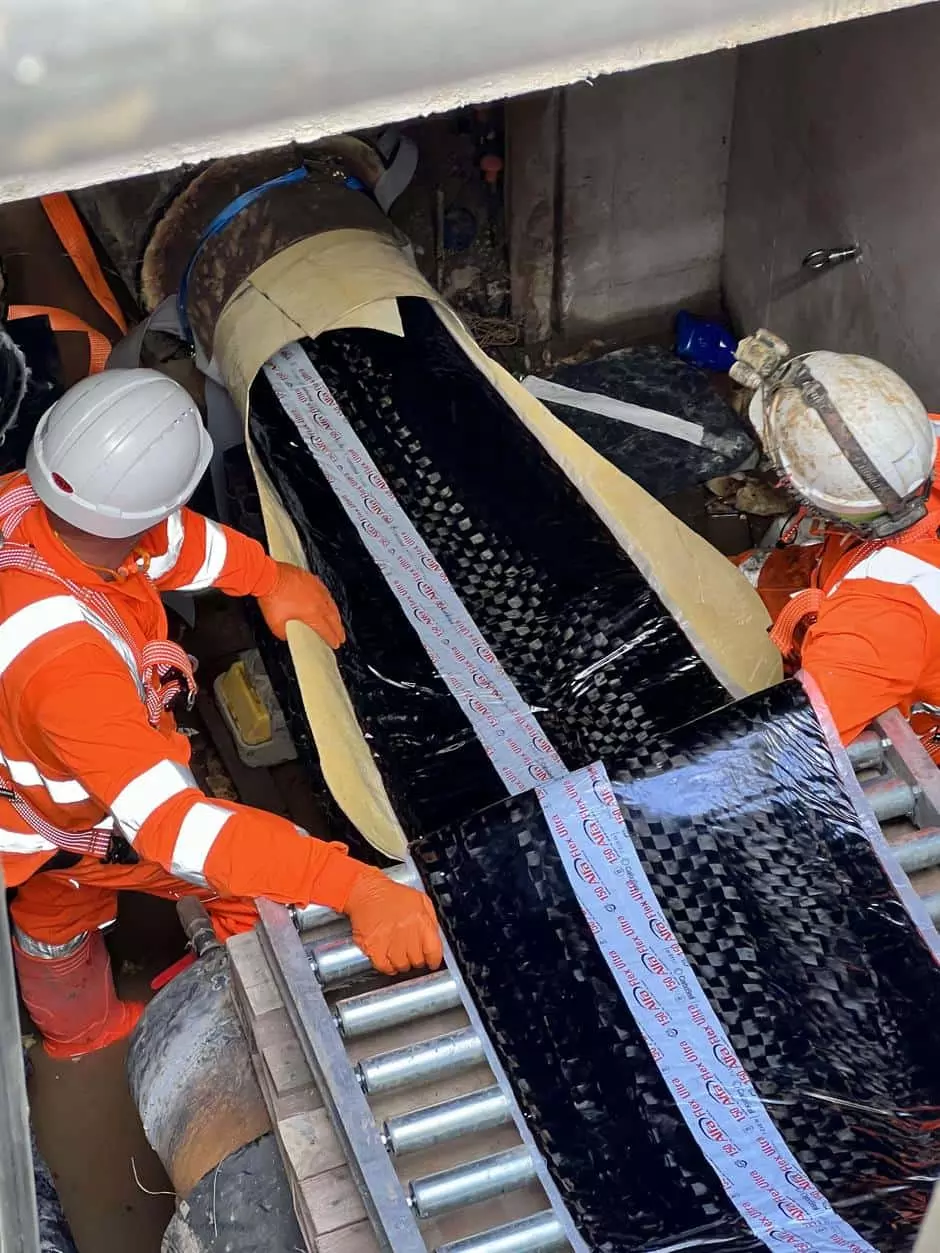Veolia use latest pipe relining innovation to maintain district heating in Sheffield
Use of carbon lining process is a first for the UK, reduces roadworks, and cuts CO2 emissions
In a first for the UK, resource management company Veolia is using the latest carbon lining pipe technology for maintaining the integrity of the heat distribution system serving the buildings and homes connected to the 44km long Sheffield District Energy Network. By relining the pipes, with a carbon fibre and epoxy resin sleeve, this innovative process removes the need to excavate large areas to reach pipe sections, which greatly lowers the need for disruptive roadworks. The resulting reduction in civil engineering can cut the CO2 emissions of these maintenance operations by up to 80%.
Operating since 1988, Sheffield's District Energy Network is one of the largest, oldest and most successful district energy networks in the UK and is supplied from the Veolia operated Energy Recovery Facility. This takes non-recyclable household waste and uses this to generate heat supplies for the district heating scheme, and delivers enough electricity for over 22,600 homes. The low carbon heat is fed through underground pipes to over 125 commercial and public sector buildings including the Lyceum Theatre, Sheffield City Hall, Weston Park Hospital, the Universities and the Millennium Galleries.
The integrity of heat distribution pipes, which distribute pressurized hot water at 110C, are key to ensure that the district heating scheme can deliver the low carbon energy to the communities and businesses in the city. By accurately monitoring and assessing the network effective upgrades can be implemented to ensure future resilience and continuity of heat supply .
Carbon lining, which has a minimal impact on system operation, now provides long term security and longevity of the pipe system as the material has very similar expansion, contraction, strength and durability properties to a steel pipe. The inherent strength of carbon lining makes it self-supporting and is designed to completely take over the workload of the host pipe, supporting the weight of the system water, and maintaining the integrity of the system. The initial works commenced during August.
Commenting on the extended capabilities from this technology, Donald Macphail, Chief Operating Officer - Treatment, at Veolia said:


In the UK Veolia currently manages the energy plant and networks across 47 sites and operates over 120 community heating schemes serving large campuses and hospitals. These distribute low carbon or renewable heat from combined heat and power plants, waste wood biomass and Energy Recovery Facilities. Globally the company currently operates around 600 district heating networks covering 7000km of heat mains.


